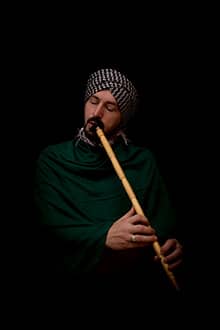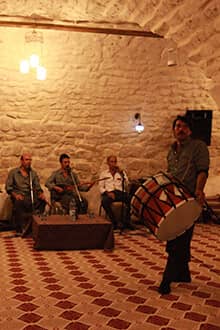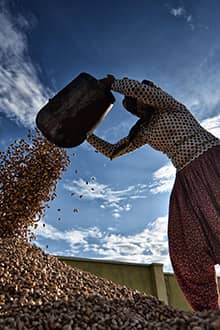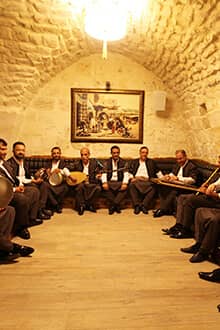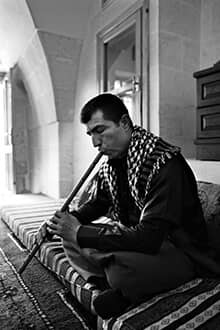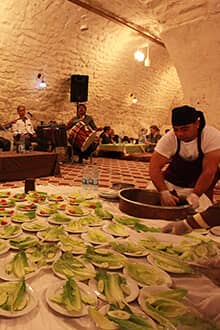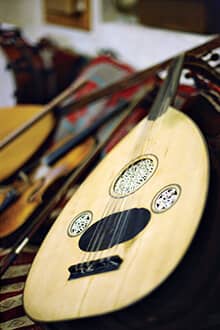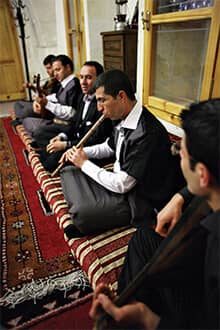

listen
Mesopotamia Türkiye
The Story of Prophet Ayyub
It is believed that Prophet Ayyub prayed by saying: "My God! My body is surrounded with weakness and debility because of illness. I have no strength left for invocation and I am deprived of mercy. I sheltered to you. You are the most soft-hearted of those compassionate ones, my God!"
God accepted the pray of Prophet Ayyub, who is a beloved servant of the God. God urged him to stomp his heel, to wash his body with the water to extract, and to drink this cold water. Prophet Ayyub fulfilled the order and stomped. The miraculous cold water squirted right away.
Prophet Ayyub had a bath in this cold water and drank the water, in this way, he cleaned both interior and external parts of his body. Thereby, he recovered from the illness.
In Urfa, it is possible to visit several locations closely linked to the life of Prophet Ayyub (Job). Job was a righteous servant of God, who despite being afflicted by suffering for a lengthy period of time never lost his faith. The story goes that God ordered Job to stomp the ground with his foot, and, after doing so, healing water gushed up from the Earth. The cave where the prophet suffered his illness and the well are believed to be in the city center of Urfa and are open to visitors. Furthermore, Prophet Job’s tomb is located in the village of Eyyub Nebi about 20 kilometers outside of Urfa.
Unmatched Entertainment of Mesopotamia
There are no loud nightclubs or entertainment centers in Mesopotamia. Instead, there are genuine traditions of hundreds of years that provide authentic entertainment that can be found nowhere else in the world.
Sıra Nights
Sıra nights (sıra geceleri in Turkish) in Şanlıurfa are definately authentic and traditional. People sing songs, dance, and eat during sira nights.
Mırra coffee is served at sıra nights, then çiğ köfte which is the main dish, and şıllık is offered as dessert. During sıra nights, which are peculiar to Şanlıurfa, two groups of people sit in opposing positions, sing folk songs, and make çiğ köfte. If you visit Şanlıurfa, we recommend that you do not to miss this unique form of entertainment.
Leyli Nights
If you set your route towards Mardin, you will have the chance to witness leyli nights in which Reyhani dances are performed. In Reyhani dances, people dance individually accompanied by music; they fall on their knees and keep their palms open signifying the "invocation of God’s blessing." Reyhani music involves various emotions such as rejoining with a loved one, separation, grief, and happiness.
The eating and drinking habits of the region also have an influence on these nights. çiğ köfte is prepared and is served together with cevizli sucuk (ıkudi), grapes, fruit leather, walnuts, almonds, pekmez halva, fruits, and other appetizers. The lyrics, folk dances, and dishes that are sung at leyli nights pave the way for maintaining and passing on the traditions of Mardin to the next generations.
Eyvan Nights
Eyvan nights are also among the options for entertainment that are peculiar to the region – these are organized in Diyarbakır. Similar to Sıra nights, people eat çiğ köfte and other types of foods, have fun, take pictures, and smoke nargile or drink coffee.
Dengbej
Another entertainment option in Diyarbakır is the dengbej tradition that dates back centuries. Dengbej is the name of the singer who sings kilam (a type of poem) and stran (folk song). At the Dengbej House in Diyarbakır you can hear the duets of dengbejs. Listening to dengbej bards while drinking your tea is a truly unique experience.
If you are searching for something further removed from tradition, the music at Diyarbakır’s rock bars in is perhaps for you!

